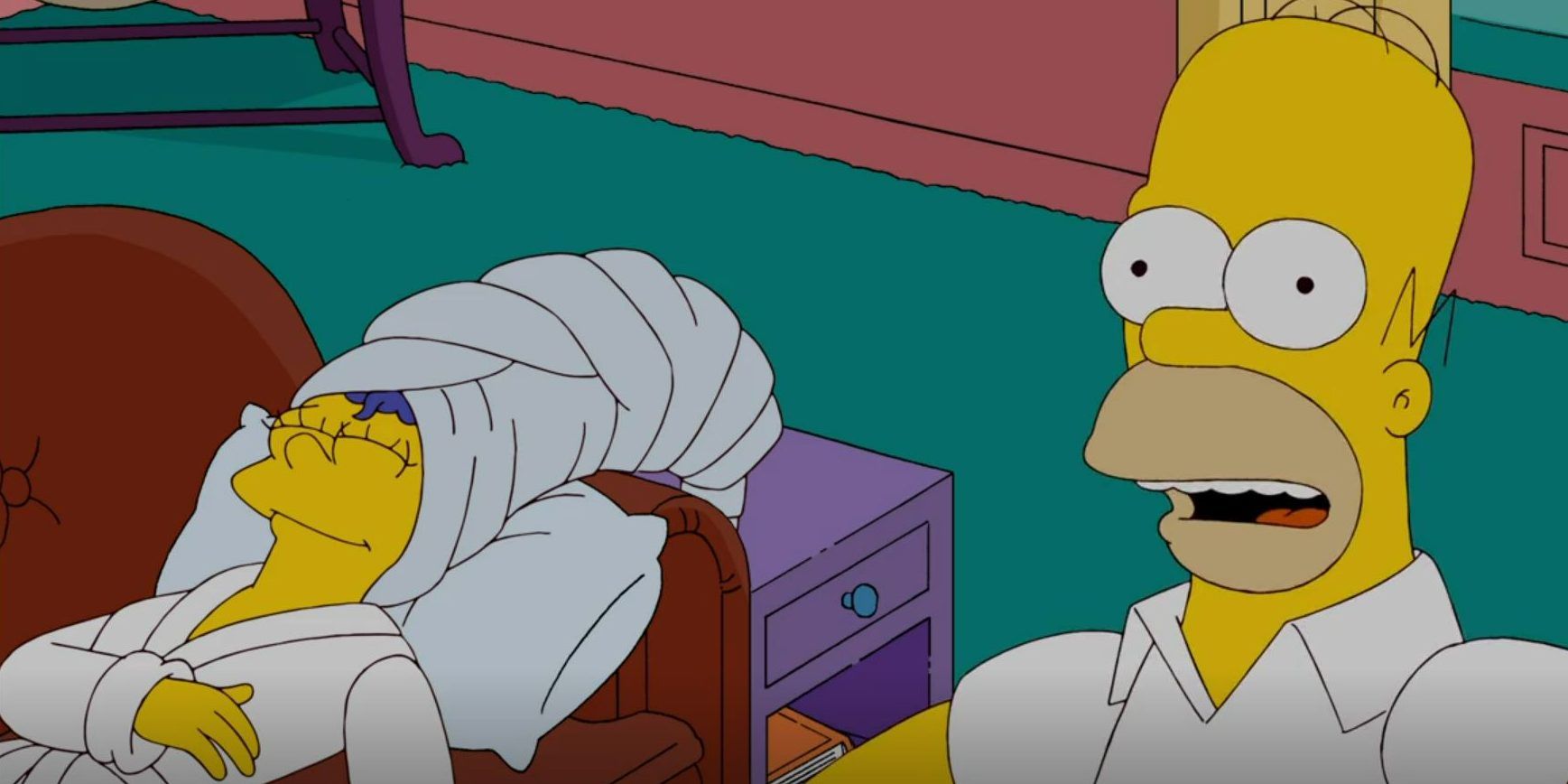A recent Twitter thread has many fans of The Simpsons revisiting an old joke about Homer wearing a towel, prompting discussion on whether or not they understand it. Former The Simpsons showrunner and writer Josh Weinstein posted (via Twitter) that he had been misinterpreting a joke from the series' Golden Age for decades. Users chimed in to say that they had the same misinterpretation–and many liked their original understanding of The Simpsons' joke better.
The joke comes from The Simpsons season 5, episode 12, "Bart Gets Famous." After taking a very unsafe shower at the nuclear power plant, Homer answers the phone with a towel wrapped around his waist, and comments "You'll have to speak up, I'm wearing a towel." Weinstein, along with many Simpsons viewers, apparently thought of the joke as just another example of The Simpsons' absurd non-sequiturs, which along with detailed visual gags made The Simpsons such an influential comedy series.
However, the joke actually makes sense given a little thought. People with long hair often dry it by wrapping it in a towel, which covers the ears, indeed making it hard to hear someone on the phone. Homer, in the way he so often does, takes something that makes sense in one context and applies it to another one where it makes no sense, with him assuming that wearing a towel anywhere on the body makes it hard to hear someone on the phone. Maybe he heard the phrase from Marge, whose gravity-defying haircut is occasionally seen drying in a towel, and didn't understand that it wouldn't apply to his bald-headed self. In any case, it makes perfect sense as another example of Homer's simple-minded approach to things.
A more interesting question is why so many people seem disappointed that there's an explanation for Homer's line. In part, this is simply nostalgia: as seen in criticisms of later Simpsons seasons, people are attached to their previous understanding of The Simpsons, a show that many watched in childhood, and may fondly remember the gag as an example of the series' absurdist humor at its best. This joke may also not resonate as well with a modern audience that doesn't talk vocally on the phone as much.
For many, The Simpsons was an inspiration most of all for its off-kilter and absurd moments. A non-sequitur punchline fits in perfectly with today's modern sense of humor that is often more bizarre than focused on wordplay or relatable concepts, from "weird Twitter" memes to sketches like I Think You Could Leave's "Coffin Flop." Someone who is a fan of absurdist humor may enjoy the joke more as a nonsensical phrase than something that has meaning. However, Homer's misunderstanding as intended is probably a better joke overall, because it draws on the character's ability to misunderstand the ordinary and helps to reveal some of the silliness of daily life. Weinstein's explanation shows how even when it was at its seemingly wackiest, the Golden Age of The Simpsons was rooted in recognizable elements of daily life.


